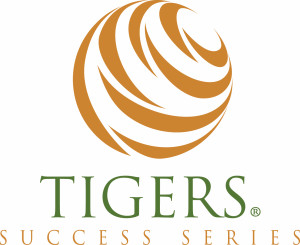 Tempers flare when a weekly sales quota doesn’t get met….
Tempers flare when a weekly sales quota doesn’t get met….
An employee is told to comprise their standards – maybe fudge some numbers or overlook a quality control issue…..
A manager takes credit for an employee’s hard work…
All instances of workplace incivility? Absolutely! According to the eighth National Business Ethics Survey (NBES), 41 percent of over 6,400 workers surveyed said they have observed misconduct on the job. Believe it or not, this number is down from 55 percent in 2007. For business consultants, team building coaches, and facilitators engaged in corporate team building, these numbers are still way too high! So take a look at team building activities that reduce workplace incivility.
With the economy on the uptick from a long and arduous recession, incivility and hostility in the workplace is slowly turning around. For business coaches, this is great news. Organizations are starting to do a better job at holding the offending employees and managers accountable. The time is ripe for consultants with a toolbox of teambuilding resources to make a big impact in creating a collaborative workplace culture.
Michael G. Oxley, ERC Chairman of the Board, former Congressman and House co-sponsor of the Sarbanes-Oxley Act of 2002 states, “Companies are working harder to build strong cultures and implement increasingly sophisticated ethics and compliance programs.”
On the flip side, the decline in wrongdoing and incivility defied two factors that often accompany misconduct – retaliation and pressure to violate rules. Both began to rear their ugly heads two years ago according to the NBES 2011 and seem to foreshadow an uptick in bad behavior.
The study also shows that most misconduct is committed by managers. Managers are responsible for a large share of workplace misconduct (60 percent) and senior managers are more likely than lower-level managers to break rules. More than one in five workers who reported misconduct said they suffered from retribution as a result. Those who chose not to report misconduct state that fear of paybacks by senior management.
So as a facilitator or internal corporate trainer what constitutes incivility? It ranges from minor social infractions to actual physical harm and includes:
- ignoring common courtesies such as excuse me or thank you
- disregarding another coworker’s time by showing up late for meetings
- taking credit for another’s work
- spreading gossip to alienate a coworker
- public belittling and criticizing
- writing hostile emails or leaving snippy voicemails
- shutting a coworker out of the loop by withholding communication
- shouting at subordinates and coworkers
- actual physical violence in the workplace
A seasoned business consultant knows to look for the more subtle signs of incivility in the workplace including:
- Loss of productivity – employees only perform at the bare minimum
- Lack of teamwork – backbiting and lack of cohesion creates an “every man for himself” environment
- High employee turnover and absenteeism–talented employees are walking out of the door
- Poor customer reviews/loss of customers – employees who experience incivility or are uncivil themselves have a tendency to provide less than “exemplary” customer service
When conducting teambuilding events, consultants and facilitators should look at the corporate environment as a whole. With an improving economy, incivility in the workplace is slowly on the decline, but 4 out of 10 employees still either experience or witness incivility in their workplace. With proven resource tools that provide measurable and scalable results, business consultants avoid temporary “quick fixes” to ensure upper management and employees assume accountability for behaviors.
We have two slots available in our facilitation methods training and licensing. Here is a link to schedule a call to determine if TIGERS Team Wheel Facilitation Methods are right for you. https://www.timetrade.com/book/KZLC2
Copyright TIGERS Success Series, Inc. by Denise McGill
 About TIGERS Success Series, Inc.
About TIGERS Success Series, Inc.
TIGERS is a collaborative work culture model that identifies behaviors that support six principles necessary for collaboration. These principles are trust, interdependence, genuineness, empathy, risk and success.